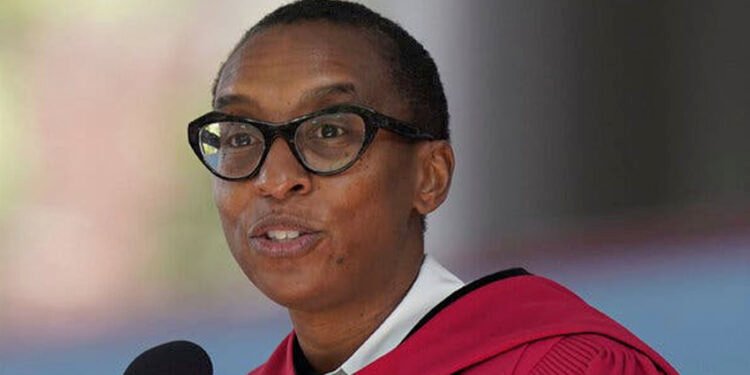
Adapted from the New York Times
Everybody has an opinion.
For some individuals and institutions, like colleges and universities, the question becomes whether or not those opinions should be voiced.
Harvard leadership, including its first Black president, Claudine Gay, came under fire for failing to voice an opinion, or take a formal stance against the war in the Middle East provoked by an attack by Hamas, an Islamic resistance movement that started in 1987.
On Monday, Lawrence H. Summers, the former Treasury secretary, and former Harvard president was outraged at the institution’s failure to denounce a statement from a coalition of Palestinian Solidarity Groups at Harvard that blamed Israel for the hostilities that began on Oct. 7.
“In nearly 50 years of @Harvard affiliation, I have never been as disillusioned and alienated as I am today,” he wrote on X, formerly Twitter. Harvard’s silence, coupled with the student coalition letter, he said, “has allowed Harvard to appear at best neutral towards acts of terror against the Jewish state of Israel.”
Gay, then issued two statements Monday night, ultimately condemning “the terrorist atrocities perpetrated by Hamas” as “abhorrent.”
On Tuesday, Gay said that “while our students have the right to speak for themselves, no student group — not even 30 student groups — speaks for Harvard University or its leadership.”
The Harvard student letter said, “For the last two decades, millions of Palestinians in Gaza have been forced to live in an open-air prison,” and concluded that as the war unfolded, “the apartheid regime is the only one to blame.”
It was signed by groups including Amnesty International at Harvard, the Harvard Kennedy School Palestine Caucus and the Harvard Divinity School Muslim Association.
Immediately after the Hamas attacks in Israel — in which assailants killed women and children — Harvard was quiet even as criticism mounted over an open letter from a student coalition.
By comparison, within a few days of the George Floyd killing in 2020 and Russia’s war against Ukraine in 2022, Harvard and other universities had issued statements, claiming solidarity with the victims.
But Dr. Summers’s pointed criticism raised questions about the obligation of universities to weigh in on difficult political matters.
Since the 1960s, it has been common for the students at institutions of higher learning to take stances on political and social issues – integrating lunch counters, protesting the Viet Nam War, U.S. corporations’ investments in apartheid South Africa.
But students over the years have frequently and successfully pressed their administrations to take positions on matters like police brutality, global warming and war.
Dr. Summers said in an interview that he could understand the case for university neutrality in political disputes, but that Harvard had forfeited that prerogative by speaking out on other issues, like Russia’s war against Ukraine and the killing of George Floyd by police in 2020.
But the controversy at Harvard is “a moment to think about the virtues of neutrality,” said Dr. Tom Ginsburg, Tom Ginsburg, faculty director of the newly created Forum for Free Inquiry and Expression at the University of Chicago.
Avoiding statements allows the university to channel its energy into “more important things,” Ginsburg said. “But that’s not the trend. Schools seem to be speaking out. And that’s why they find themselves in political trouble.”
The post At Harvard, a Battle Over What Should Be Said About the Hamas Attacks first appeared on Post News Group. This article originally appeared in Post News Group.










